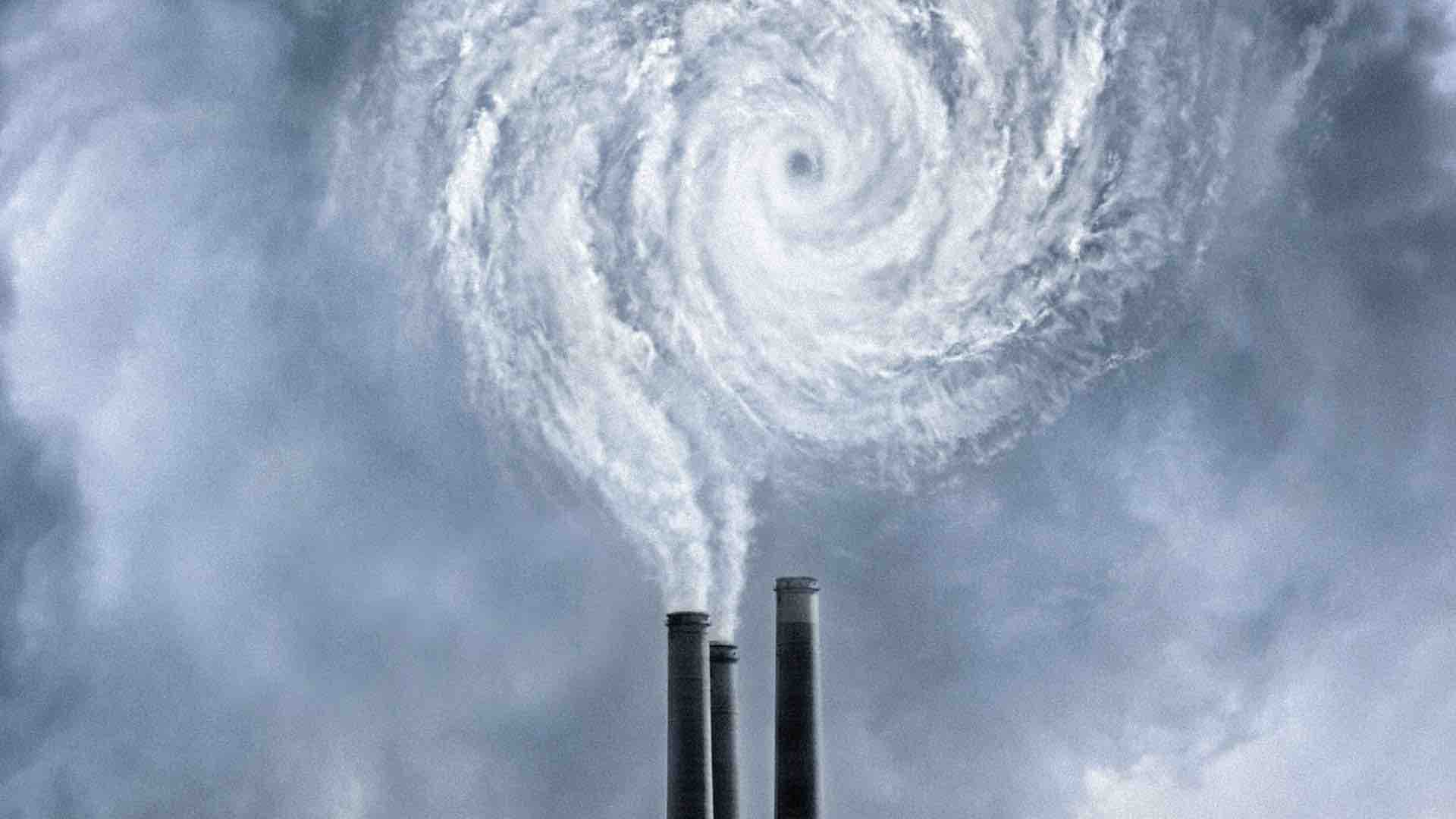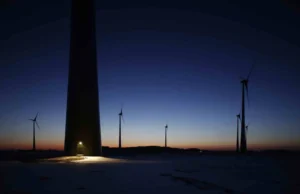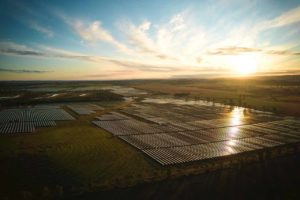Fifteen years ago, when I joined the early ranks of clean energy entrepreneurs, we were nearly dead in the water on climate. Oil was $15 per barrel, Al Gore’s groundbreaking movie An Inconvenient Truth hadn’t come out, and a solar panel was something that powered a calculator.

In the year 2005, I went to my first “Alternative Energy Conference” in Aspen, Colorado. I was asked to speak at the event, and hadn’t paid much attention to the agenda. Upon arrival I found the audience consisted of coal, oil and gas executives.
It turns out that “alternatives” in the energy space in 2005 actually meant new methods for extracting old fossil fuels: tar sands, “clean coal,” and a new thing called fracking. This, according to all of the other speakers, was the future.
I didn’t walk away optimistic about our coming transition. Forecasters weren’t wearing their rose-colored glasses either.
What a Difference a Decade Makes
In the first quarter of 2017, renewable energy accounted for 20% of all U.S. electricity while fracking has gone mainstream.
On the flip side, six publicly traded coal companies declared bankruptcy from April 2015–2016 while coal production had its steepest annual decline since 1958. And after much hype, the number of operational clean coal power plants in the U.S. remains firmly stuck at…zero.
A coal plant built today would not be competitive with a combination of wind and solar in virtually any location in the country. And nowhere would it be competitive with natural gas.
In the end, these fossil sources, particularly coal, look increasingly like the new “alternative energy sources,” since there’s simply no economic justification for them.
The speed of this transformation may surprise some readers. That’s understandable. For years, traditional energy analysts have completely misforecast the transformation.
Why were these analysts so wrong? What drove this profound shift with such speed? This did not happen because of Paris. This didn’t even happen because of Kyoto before it.
It didn’t happen because of something Trump did or undid. It didn’t even happen because of President Obama’s Climate Action Plan.
The Real Change Agents of the Energy Transformation
Three drivers of change set us on this course. It started first with the growing chorus of concerned citizens, scientists, and activists coming together to seek out solutions — often at a local level. This was catalyzed by inflection points like An Inconvenient Truth, but the sources of inspiration were everywhere as the evidence of change mounted. Second, local and state leaders in the U.S. started to listen.
Across party lines, real leadership showed up to pass Renewable Portfolio Standards, enhanced automotive standards, and air quality improvement plans. Third, in reaction to the first two, businesses started playing an increasingly important role.
Broadly speaking, businesses have played two key roles in cementing our direction on climate.
First, large companies have finally started to internalize the will of their customers. Five out of the top six most valuable public companies in the world are U.S.-based technology companies: Google (Alphabet), Apple, Microsoft, Amazon, and Facebook.
They are also the source of the greatest amount of electricity demand growth in world. All of them have now committed to 100% clean energy in the near future — Google is there today. The others behind them will follow suit.
Leading companies have committed to 100% clean energy to save money, show leadership, and meet the growing cries from their customers and employees to be part of the solution. The magnitude of this commitment cannot be overstated. These companies have a combined market capitalization of nearly $2.3 trillion — exceeding the size of nearly every economy that signed the Paris accord.
The second way business has played a key role is innovation and entrepreneurialism. The impact of buying power is the domain of the large multinationals.
The impact of innovation is the domain of startups. From SunPower and First Solar to Tesla and Nest, we have continually seen the unbounded creativity of startups and founders prove the impossible. And we’re just getting warmed up.
Electric buses, large-scale energy storage, autonomous cars, electric planes, and the myriad software solutions to help make our energy more efficient and effective are launching daily.
Trump and Paris: Both Irrelevant?
Last year, diplomats and world leaders gathered in France to sign the Paris climate accord. It was the culmination of over a decade’s worth of work, and it was heralded as an historic agreement.
The accord was historic. Virtually all climate scientists agree the commitments were in fact necessary first steps. Most would also agree they were not sufficient, but at least they showed an alignment and a willingness to stand together in this time of global crisis.
In June of this year, our new president began the work of removing the U.S. from the Paris commitments. But interestingly, it would appear the U.S. commitment, or lack thereof, has had no material impact on the movement to address climate change. Like so many of the solutions to our climate challenges, the movement is now distributed and highly effective.
An Unstoppable Force
As has been pointed out many times, all of the stakeholders addressing climate change were moving on their own before Paris, and virtually all of them already had in place plans which would result in exceeding the Paris goals. This is true of the U.S. as well.
The real value of Paris was simply coming together to collectively acknowledge the challenge and show unity around a future engagement for the next steps after Paris.
Today, leadership is everywhere, distributed in its origins, rationale and actions. China is investing hundreds of billions into renewables over the next three years while slowing plans for coal-fired power plants. The same is happening across India.
Germany is now sourcing as much as 85% of all its energy from renewables at any given time, with Chile and the Nordic countries pushing ahead as well.
The story of transformation here in the U.S. is, typically, much more diverse and creative than some of the top-down transformations listed above.
The U.S. shift didn’t happen because of a global accord, or really with much support at the federal level at all. It happened because of local leadership, consumer demands and entrepreneurialism.
The Road Ahead Has No U-Turns
The efforts of brave local political leaders, individual consumers and prosumers (those using as well as selling back their solar or storage), and most importantly of businesses around the globe has proven an irreversible movement.
No one global leader nor one global accord is going to make or break this effort. This is a decentralized transformation, and no one in their right mind wants to go backward.
The road to safer, cleaner future has not been straight, but it is one-way.
No one in Delhi wants more soot in the air once they realize the connection to coal. No one in Guangzhou wants toxic rivers once they’ve seen clean water again. No one in Dallas or New York wants dirty streets and diesel buses once they’ve seen the improvement of all-electric.
President Trump’s attempted reversals on climate are pathetic. There is no clearer an example of political manipulation than his rhetoric on Paris. While he’s in office, he clearly weakens our global standing, and we must stand up to show he doesn’t represent the majority of Americans — he represents less than a third, to be precise.
Thankfully, the president is decreasingly relevant. We’re doing this with or without him, and there’s nothing he can do to stop it. America’s leading corporations are exceeding the Paris targets.
States representing the majority of the country are exceeding the goals of the accord. While Trump plays petty pay-back politics which embarrasses us on the world stage, we’re getting the job done here at home.
Andrew Beebe is the managing director of Obvious Ventures. This piece was originally posted on Medium and was republished with permission. Follow Andrew and Obvious Ventures on Medium.










